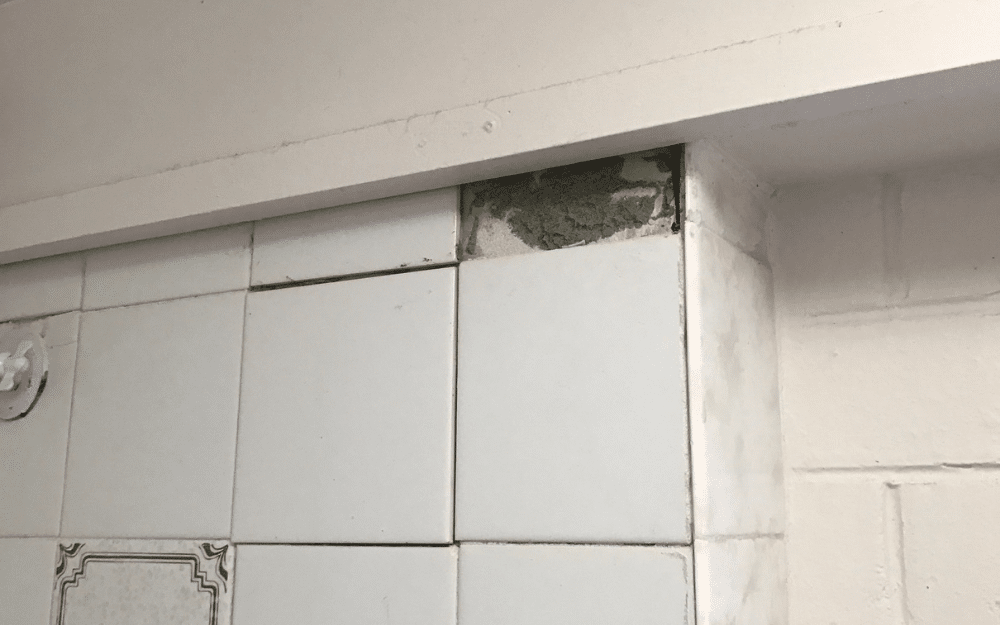Are Your Cleaning Habits Damaging Your Shower?
Are Your Cleaning Habits Damaging Your Shower?
Tile grout can be difficult to keep clean, especially in your shower where it is regularly wet. Warm moist areas create the perfect environment for mildew and mould to grow, so it is understandable that you want to keep your shower as clean as possible.
But could your cleaning habits be damaging your shower by causing your grout and shower sealant to break down? Read on to learn more about the effects of cleaning products on your shower integrity.
What Is Grout?
Tile grout is the hardened material that fills the space in between your tiles and keeps the water out. It is essentially a combination of cement, water and colourant that is applied under pressure to avoid gaps and achieve a smooth watertight finish to your shower and bath area.
Because grout is porous, a sealant is usually applied to prevent any breakdown in between the tiles over time. However, grout can be damaged, and this can cause water to seep through the tiles and compromise the integrity of the waterproof membrane, or worse, leak and damage the building structure.
If the grout was improperly mixed during installation, by either adding too much water or additive, air pockets may form, resulting in brittle weak grout that will break down much faster. Similarly, if the mixed grout has passed its use-by date, the chemical reaction can be compromised leading to crumbly soft grout.
Even correctly mixed and applied grout can break down over time with these common cleaning habits.
Using Bleach
Bleach is a highly caustic alkaline with a pH level high enough to chemically burn if not used with care. Alkaline cleaners are great for killing bacteria and removing grease or hard substances, and the instant stain removal results you see with bleach make it an easy choice to clean stubborn discolouration. But for tiles and grout, bleach should not be used regularly due to its highly reactive nature that can strip away grout sealant, weaken grout, damage dark, coloured, and unglazed tiles, and erode aluminium trims. On top of these risks, are the risks to your health including spills, splashes, and fumes. Contact a leaky shower expert to have your shower checked.
Using Acids
Vinegar and Lemon have been used for centuries as natural nontoxic cleaning agents, and as more and more consumers reject harsh chemicals in their homes to protect the health of their families and the environment, vinegar has once again become a popular choice as an all-around cleaning agent. However, it is important to remember just like alkaline, acids are high on the other end of the pH scale and can cause similar damage to your grout. Acidic cleaners chemically react and work to dissolve materials, which means the impressive clean results you got from using vinegar or other acidic cleaners on your grout came about from it dissolving a thin top layer. Obviously, over time this erosion compromises the grout leaving it exposed to further staining or leakage.
What’s Next?
Gentle cleaning solutions with a neutral pH are ideal for prolonging the life of your bath and shower area. If you have been cleaning your tiles with strong acids or alkaline and have noticed your grout looking less healthy over time, or if your grout has broken down and you are worried water may be escaping, don’t hesitate to seek the opinion of an expert to get advice on improving the state of your shower.
Broken or weakened grout may allow water to seep onto the waterproofed membrane underneath the tiles and potentially cause more issues if water reaches joints or areas that may cause structural damage. So, it is especially important to attend to any concerns quickly before any damage occurs.
You are welcome to contact our team and a professional technician will come and assess your area of concern and if required, will conduct a pressure and moisture test at no cost to you. We will offer feedback and advice based on our findings, along with an obligation-free quote within 72 hours of our visit.
We won’t let a leaky shower dampen your day!

